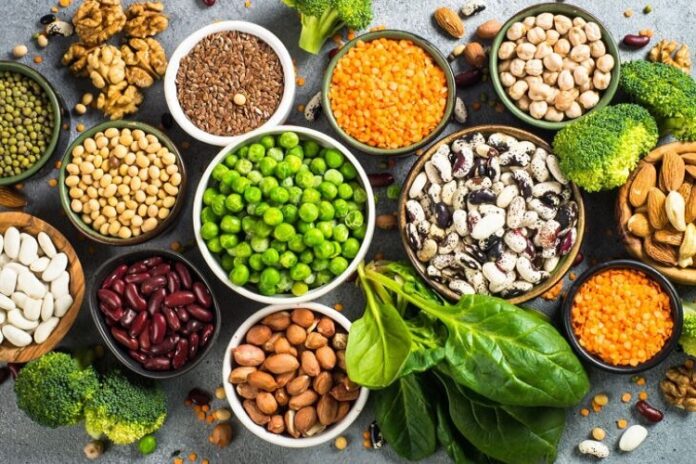In recent years, the popularity of plant-based diets has soared with the interest in plant-based protein sources. People are increasingly adopting plant-based diets for various reasons, such as ethical concerns, environmental sustainability, and health benefits. Explore the in-depth resource on plant-based protein sources at Al-Thai.com to discover a world of scrumptious and wholesome alternatives to conventional protein options.
One misunderstanding regarding plant-based diets, though, is that there isn’t enough protein in them. This article will dispel this myth and offer an in-depth overview to a variety of plant-based protein sources that can satisfy your dietary requirements.
Understanding Protein and its Importance
Let’s first examine the importance of protein in our diets before exploring plant-based protein sources. Proteins are necessary macronutrients that are important for tissue growth and repair, immune system support, and acting as hormones and enzymes. They are composed of amino acids, some of which are known as essential amino acids, which our bodies cannot produce and must be obtained through diet. Learn about the science of protein and its critical function in your health. To learn more about amino acids, muscle restoration, and immune support, go to Eatwellandlivelong.com right away.
The Power of Plant-Based Proteins
Plant-based proteins offer a plethora of benefits. They are often lower in saturated fats and cholesterol than animal-based proteins, making them heart-healthy. Moreover, plant-based proteins are rich in fiber, vitamins, minerals, and antioxidants, promoting overall well-being. Looking for a change? Only at Vegetarianweek.org you will discover the delectable potential of recipes using plant-based proteins and their effects on your health.
Top Plant-Based Protein Sources
Legumes and Pulses
Legumes and pulses are a fantastic source of plant-based protein. Options like chickpeas, lentils, black beans, and kidney beans are high in protein and packed with fiber. They can be easily incorporated into soups, salads, stews, and other dishes.
Quinoa
Quinoa is a complete protein, meaning it contains all essential amino acids. It is a versatile grain and can be used as a base for salads, bowls, or a side dish.
Nuts and Seeds
Nuts and seeds, such as almonds, chia seeds, and hemp seeds, are excellent sources of protein, healthy fats, and essential nutrients. They can be consumed as snacks, added to smoothies, or used as toppings for yogurt and salads.
Tofu and Tempeh
Tofu and tempeh are soy-based products rich in protein and can be used as meat alternatives in various recipes. They absorb flavors well and can be grilled, sautéed, or used in stir-fries.
Spinach
Leafy greens like spinach are a good source of iron and offer a fair amount of protein. They can be added to salads, smoothies, and sautéed dishes.
Seitan
Seitan, also known as wheat gluten, is a protein-rich meat substitute. It is often used in vegan and vegetarian recipes to create meat-like textures.
Edamame
Edamame, young soybeans, are packed with protein and can be enjoyed as a snack or added to salads and stir-fries.
Chickpea Pasta
Gluten-sensitive people can eat chickpea pasta instead of regular wheat spaghetti since it is both gluten-free and high in protein.
Spirulina
Spirulina is a blue-green algae with a high protein concentration and various nutrients. It is available in powder or tablet form and can be added to smoothies or beverages.
Green Peas
Green peas are a great protein source and rich in vitamins and minerals. They can be used in various dishes, including soups and salads.
Tips for Incorporating Plant-Based Proteins
Mix and Match
Combine various plant-based protein sources to create well-rounded meals that provide all essential amino acids.
Experiment with Recipes
Try new recipes and cooking methods to discover exciting ways to incorporate plant-based proteins into your diet.
Supplement Wisely
Consider adding plant-based protein supplements to meet your daily protein requirements if necessary.
Conclusion
Plant-based protein sources offer various options for everyone’s dietary needs and preferences. You can easily meet your protein requirements while enjoying delicious and nutritious meals by including a variety of legumes, grains, nuts, seeds, and other plant-based foods in your diet.
[calorie_calculator]









